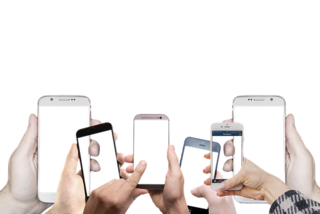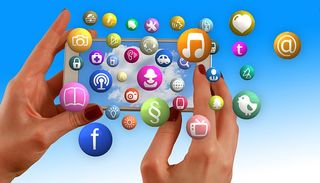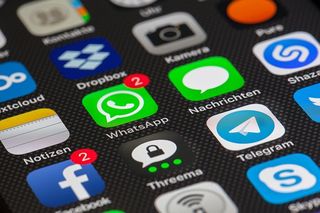
In recent weeks Apple, Google, Instagram, Facebook and YouTube have all released plans for helping you track your use of their products. Based on the latest research from my lab it is clear that the typical young adult unlocks her phone 70+ times a day for about 260 daily minutes. This equates to unlocking the phone, checking for 3-to-4 minutes and then locking it again for about 10 minutes and doing it all over again and again and again. Much of that time is spent on social connection (young adults averaged six active social media accounts). Over the past two years we have seen these numbers rise from 50+ unlocks a day for 220 minutes to more than four hours a day for young adults and nearly 5 hours per day in a pilot study with high school seniors. For our studies we had students use a third party app. Soon tech companies will offer a built-in app to provide these same data plus information about our use of specific apps. This will provide users with the “What”—data on what they are doing on their phones. [By the way, nearly all of our young adults tell us that they are surprised that they are spending so much time on their phone but even knowing this they make no effort to reduce phone time.]

The apps will not provide the “Why”—what is causing people to use their phones obsessively. We know that half the time a phone is unlocked an alert or notification is responsible. However, the other half the time there is no alert except the one inside your head telling you to check your phone. I have been studying the “why” for three decades and have written seven books on the ‘psychology of technology.” Our current research coupled with Information Foraging Theory suggests several reasons why we do these seemingly obsessive/compulsive repetitive actions. First, technology is omni-accessible. We all carry our phones close to our bodies and sleep with them at our bedside. And that doesn’t count our other devices. A 2018 Nielsen report found that American adults spend more than 11 hours per day behind screens and smartphones only account for less than a third of that time with the rest allocated to televisions, tablets, and computers. Second, we are making poor decisions about how to allocate our time. Metacognition entails understanding how our brain best operates and we are making choices that are counter to sensible metacognitive decisions such as second screening while watching TV or constantly checking our phone in social situations. Third, we are suffering from what some call nomophobia, which is not being able to be without our phones. When we are separated from our smartphone we start to get anxious rather quickly; our anxiety starts to rise within 3-to-5 minutes according to most research and this causes us to self-distract. Finally, we have forgotten how to be bored. We are no longer able to sit with our thoughts and, instead, quickly grab our phone to assuage the uncomfortable feeling of having nothing to do. Just watch people at a stoplight or walking across a busy street. Clearly, the short wait to check the phone is too much to just engage in free thoughts.
Once we understand the “Why” we can investigate the “How”—what we can do to ameliorate the problem. In The Distracted Mind: Ancient Brains in a High-Tech World, Adam Gazzaley. MD, Ph.D. and I provide myriad strategies from both neuroscience and psychology to help one stay focused and not fall into the distraction trap.

One simple strategy is to remove all alerts and notifications and then take all social media apps, place them into individual folders, move those folders to the last page of your home screen and embed the folders within each other. This won’t stop the use of social media but having to scroll to the last home screen and then tap multiple times to find the social media app you are craving will give the user time to ask, “why am I doing this?” and perhaps reduce the need to check in so often. [NOTE: You will need to alert all of your "friends" that you might not respond immediately to their post or comment or text or whatever as you are trying to curb your personal obsession.] Another strategy is to move the phone from the bedside at night to another less accessible location. This has been shown to improve sleep quality and lessen the use of second screens. If you can learn to do this then you won’t need to keep rewinding the TV show to capture what you missed as you were checking Facebook and Twitter and Instagram and the news. Not to mention that you won't have to ask your partner to keep repeating what he/she just said while your mind was distracted by your smartphone.


